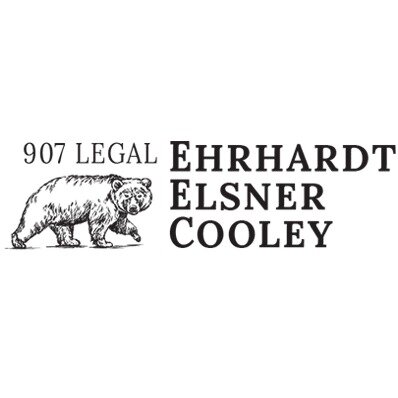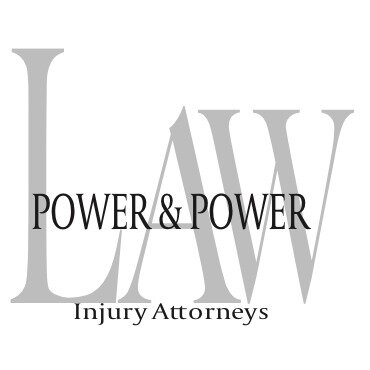Best Truck Accident Lawyers in Alaska
Share your needs with us, get contacted by law firms.
Free. Takes 2 min.
Or refine your search by selecting a city:
List of the best lawyers in Alaska, United States
About Truck Accident Law in Alaska, United States
Truck accidents in Alaska involve legal issues that arise when large commercial vehicles such as semis, tractor-trailers, and delivery trucks are involved in collisions. Due to the size and weight of these trucks, accidents often result in severe injuries or fatalities. The laws pertaining to truck accidents include both state and federal regulations related to roadway safety, driver qualifications, vehicle maintenance, and insurance requirements. Alaska's remote locations and challenging driving conditions can make these cases more complex, requiring an understanding of how local factors affect truck accident claims and litigation.
Why You May Need a Lawyer
After a truck accident in Alaska, dealing with the aftermath can be overwhelming. A lawyer may be needed in situations such as:
- Negotiating with trucking companies or their insurers, who may try to minimize payouts or deny claims.
- Investigating whether driver fatigue, improper maintenance, or violations of state or federal regulations contributed to the crash.
- Calculating fair compensation for medical bills, lost wages, pain and suffering, and property damage.
- Litigating complex liability issues, including multi-vehicle accidents or accidents in remote regions.
- Managing deadlines and filing requirements set by Alaska law (statute of limitations).
- Gathering and preserving critical evidence, such as logbooks, black box data, and surveillance footage.
A lawyer can help level the playing field against large trucking companies and help protect your rights.
Local Laws Overview
Alaska truck accident cases are governed by both state and federal laws:
- State Law: Alaska follows a comparative negligence rule, meaning if you are partially at fault, your compensation can be reduced by your percentage of fault.
- Statute of Limitations: In Alaska, you generally have two years from the date of the accident to file a personal injury lawsuit.
- Commercial Vehicle Regulations: The Alaska Department of Transportation and Public Facilities oversees commercial vehicle operation, including strict rules on driver hours, vehicle maintenance, and cargo securement.
- Insurance Requirements: Commercial trucks must carry higher levels of insurance than personal vehicles, which can affect settlement options.
- Federal Law: The Federal Motor Carrier Safety Administration (FMCSA) sets standards for commercial driver licensure, hours of service, and safety protocols.
- Unique Environmental Factors: Alaska’s harsh weather, seasonal darkness, and rugged terrain can impact liability and causation analysis.
Frequently Asked Questions
What should I do immediately after a truck accident in Alaska?
Seek medical attention for any injuries, call law enforcement to the scene, document the accident with photos and witness statements, and do not discuss fault at the scene. Contact your insurance provider and consider consulting a lawyer before speaking to representatives from the trucking company.
Who can be held liable for a truck accident in Alaska?
Potentially liable parties may include the truck driver, the trucking company, cargo loaders, maintenance contractors, or manufacturers of faulty truck parts, depending on the circumstances of the accident.
How long do I have to file a claim after a truck accident?
Generally, you have two years from the date of the accident to file a lawsuit for personal injury or wrongful death in Alaska.
How is fault determined in an Alaska truck accident?
Fault is determined using evidence from police reports, witness statements, truck logs, black box data, and expert analysis. Alaska law allows for comparative negligence, so liability may be shared among several parties.
What types of damages can I recover?
You may recover compensation for medical bills, lost income, pain and suffering, rehabilitation costs, property damage, and, in some cases, punitive damages.
Should I speak to the trucking company’s insurance adjuster?
Be cautious when dealing with insurance adjusters. It is advisable to consult a lawyer first, as anything you say could affect your claim.
Do truck drivers and trucking companies have special insurance?
Yes, Alaska requires commercial trucks to carry higher levels of liability insurance to cover the greater risks associated with large vehicles.
If I was partially at fault, can I still recover damages?
Yes. Under Alaska’s comparative negligence rule, you can still recover damages, but your compensation may be reduced in proportion to your share of fault.
What unique challenges do truck accident cases in Alaska present?
Alaska’s remote geography can make gathering evidence and interviewing witnesses more difficult. Weather and road conditions may also play a significant role in these cases.
How much does it cost to hire a truck accident lawyer in Alaska?
Many lawyers work on a contingency fee basis, meaning you pay nothing upfront and your lawyer is paid a percentage of your settlement or award if you win.
Additional Resources
- Alaska Department of Transportation and Public Facilities - Commercial Vehicle Enforcement
- Federal Motor Carrier Safety Administration (FMCSA) - Safety resources and complaint systems
- Alaska Division of Motor Vehicles - Accident reporting information
- Alaska Court System - Resources for civil litigation and small claims
- Alaska Bar Association - Lawyer referral services
- Local legal aid organizations for free or low-cost legal advice
Next Steps
If you or a loved one has been involved in a truck accident in Alaska, start by seeking medical attention and securing a police report. Collect as much documentation as possible, including photos, witness contact information, and all correspondence related to the accident. Next, consult with an experienced truck accident lawyer familiar with Alaska’s specific laws and conditions. They can evaluate your case, explain your rights, and guide you through the claims process. Acting quickly is important to protect your legal rights and maximize your chances for fair compensation.
Lawzana helps you find the best lawyers and law firms in Alaska through a curated and pre-screened list of qualified legal professionals. Our platform offers rankings and detailed profiles of attorneys and law firms, allowing you to compare based on practice areas, including Truck Accident, experience, and client feedback.
Each profile includes a description of the firm's areas of practice, client reviews, team members and partners, year of establishment, spoken languages, office locations, contact information, social media presence, and any published articles or resources. Most firms on our platform speak English and are experienced in both local and international legal matters.
Get a quote from top-rated law firms in Alaska, United States — quickly, securely, and without unnecessary hassle.
Disclaimer:
The information provided on this page is for general informational purposes only and does not constitute legal advice. While we strive to ensure the accuracy and relevance of the content, legal information may change over time, and interpretations of the law can vary. You should always consult with a qualified legal professional for advice specific to your situation.
We disclaim all liability for actions taken or not taken based on the content of this page. If you believe any information is incorrect or outdated, please contact us, and we will review and update it where appropriate.
Browse truck accident law firms by city in Alaska
Refine your search by selecting a city.















